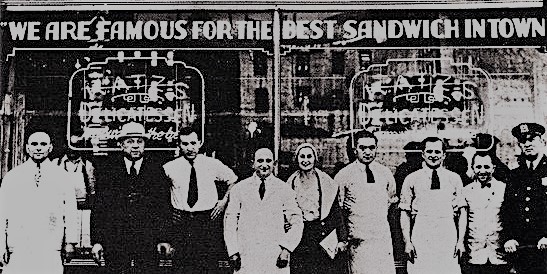In his book Antifragile: Things That Gain from Disorder Nassim Taleb provides a simple heuristic, known as the Lindy Effect. The effect simply says: that the expected life of an item is proportional to its past life. You can use this heuristic to help you choose your next book based on the wisdom it might contain.
Taleb explains the Lindy Effect heuristic using the example of a deli in New York.
Lindy is a deli in New York, now a tourist trap, that proudly claims to be famous for its cheesecake, but in fact has been known for the fifty or so years of interpretation by physicists and mathematicians of the heuristic that developed there. Actors who hung out there gossiping about other actors discovered that Broadway shows that lasted, say one hundred days, had a future life expectancy of a hundred more. For those that lasted two hundred days, two hundred more.* The heuristic became known as the Lindy Effect.

Taleb says “the Lindy effect is one of the most useful, robust, and universal heuristics I know.” That’s because:
The only effective judge of things is time – by things we mean ideas, people, intellectual productions, car models, scientific theories, books, etc. You can’t fool Lindy: books of the type written by the current hotshot Op-Ed writer at the New York Times may get some hype at publication time, manufactured or spontaneous, but their five year survival is generally inferior to that of pancreatic cancer.
William Deresiewicz on the great books
In his seminal lecture on solitude & leadership at the United States Military Academy at West Point, William Deresiewicz makes a related point. Great books, he says:
Stand against the conventional wisdom of today simply because they’re not from today. Even if they merely reflect the conventional wisdom of their own day, they say something different from what you hear all the time. But the great books, the ones you find on a syllabus, the ones people have continued to read, don’t reflect the conventional wisdom of their day. They say things that have the permanent power to disrupt our habits of thought. They were revolutionary in their own time, and they are still revolutionary today. And when I say “revolutionary,” I am deliberately evoking the American Revolution, because it was a result of precisely this kind of independent thinking.
* Taleb cites physicist Richard Gott, who tested this argument by making a list of Broadway shows on a given day, May 17, 1993, and predicted that the longest running ones would last longest and vice versa. He was proven right with 95% accuracy.
If you enjoyed this, you might like:
My list of 15 books that will make you wiser. Not every book passes the Lindy test but quite a few of them do!
Access my Library containing all the books that I have read.
